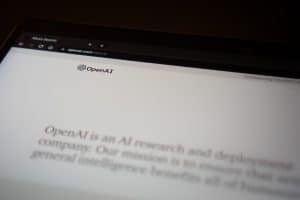Artificial Intelligence (AI) has undoubtedly made remarkable advancements in various fields within the past year, including digital marketing and content creation. AI-generated content, powered by models like ChatGPT, has the potential to automate the writing process and increase efficiency. However, entrusting AI with complete control over digital content creation is a decision that requires careful consideration. Let’s explore the current limitations of AI in content generation and why humans still play a crucial role in crafting quality digital content.
1. AI Is Unreliable
While AI has shown impressive capabilities in generating coherent text, it still struggles with certain aspects of content creation. AI models can produce grammatically correct sentences, but they often lack contextual understanding and may generate inaccurate information or information that doesn’t necessarily make sense. Relying solely on AI for content creation could lead to misleading or factually incorrect information.
2. The Importance of Human Creativity
Content creation goes beyond grammar and structure; it requires creativity, intuition, and a deep understanding of human emotions and nuances. Humans can naturally create originality, authenticity, and empathy in their writing. These qualities are essential in engaging an audience, establishing trust, and evoking meaningful connections that AI-generated content often lacks.
3. Attention to Detail
While AI models are great for repetitive tasks and can help you quickly generate large volumes of content, they sometimes miss the smaller details that a human would most likely naturally catch. Simple spelling mistakes, contextual errors, or improper word usage can negatively impact the credibility and professionalism of digital content released by your business. Human writers, with their attention to detail, are better equipped to ensure the accuracy and quality of the final product.
Rather than replacing human writers, AI should be viewed as a powerful tool that can enhance the content creation process. AI-generated content can serve as a valuable starting point or provide inspiration for human writers, helping them streamline their work and save time.
While AI has made significant strides in content generation, it still needs to be more reliable to be trusted with complete control over digital content creation. Human writers bring a unique set of skills and qualities that AI currently lacks, such as creativity, emotional intelligence, and attention to detail. By recognizing the limitations of AI and leveraging it as a tool, we can strike a balance that harnesses the efficiency of AI while preserving the human touch in crafting compelling and trustworthy digital content.






